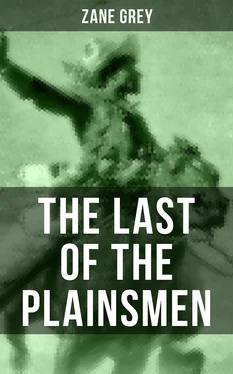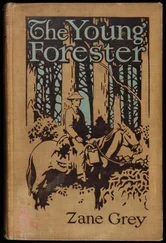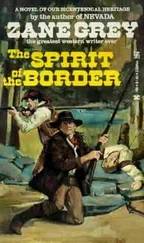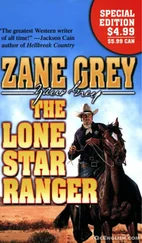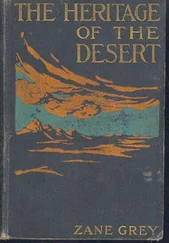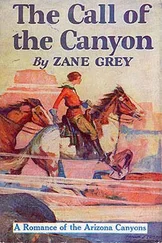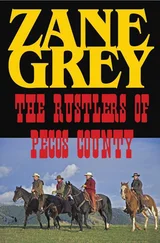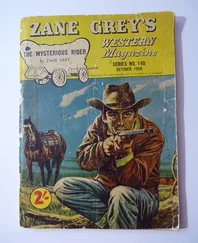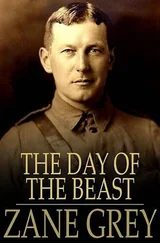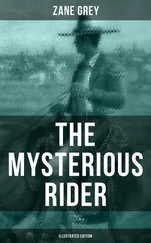All that my well-meaning friend suggested made me, of course, only the more eager to go with Jones. Where I had once been interested in the old buffalo hunter, I was now fascinated. And now I was with him in the desert and seeing him as he was, a simple, quiet man, who fitted the mountains and the silences, and the long reaches of distance.
"It does seem hard to believe—all this about Jones," remarked Judd, one of Emmett's men.
"How could a man have the strength and the nerve? And isn't it cruel to keep wild animals in captivity? it against God's word?"
Quick as speech could flow, Jones quoted: "And God said, 'Let us make man in our image, and give him dominion over the fish of the sea, the fowls of the air, over all the cattle, and over every creeping thing that creepeth upon the earth'!"
"Dominion—over all the beasts of the field!" repeated Jones, his big voice rolling out. He clenched his huge fists, and spread wide his long arms. "Dominion! That was God's word!" The power and intensity of him could be felt. Then he relaxed, dropped his arms, and once more grew calm. But he had shown a glimpse of the great, strange and absorbing passion of his life. Once he had told me how, when a mere child, he had hazarded limb and neck to capture a fox squirrel, how he had held on to the vicious little animal, though it bit his hand through; how he had never learned to play the games of boyhood; that when the youths of the little Illinois village were at play, he roamed the prairies, or the rolling, wooded hills, or watched a gopher hole. That boy was father of the man: for sixty years an enduring passion for dominion over wild animals had possessed him, and made his life an endless pursuit.
Our guests, the Navajos, departed early, and vanished silently in the gloom of the desert. We settled down again into a quiet that was broken only by the low chant-like song of a praying Mormon. Suddenly the hounds bristled, and old Moze, a surly and aggressive dog, rose and barked at some real or imaginary desert prowler. A sharp command from Jones made Moze crouch down, and the other hounds cowered close together.
"Better tie up the dogs," suggested Jones. "Like as not coyotes run down here from the hills."
The hounds were my especial delight. But Jones regarded them with considerable contempt. When all was said, this was no small wonder, for that quintet of long-eared canines would have tried the patience of a saint. Old Moze was a Missouri hound that Jones had procured in that State of uncertain qualities; and the dog had grown old over coon-trails. He was black and white, grizzled and battlescarred; and if ever a dog had an evil eye, Moze was that dog. He had a way of wagging his tail—an indeterminate, equivocal sort of wag, as if he realized his ugliness and knew he stood little chance of making friends, but was still hopeful and willing. As for me, the first time he manifested this evidence of a good heart under a rough coat, he won me forever.
To tell of Moze's derelictions up to that time would take more space than would a history of the whole trip; but the enumeration of several incidents will at once stamp him as a dog of character, and will establish the fact that even if his progenitors had never taken any blue ribbons, they had at least bequeathed him fighting blood. At Flagstaff we chained him in the yard of a livery stable. Next morning we found him hanging by his chain on the other side of an eight-foot fence. We took him down, expecting to have the sorrowful duty of burying him; but Moze shook himself, wagged his tail and then pitched into the livery stable dog. As a matter of fact, fighting was his forte. He whipped all of the dogs in Flagstaff; and when our blood hounds came on from California, he put three of them hors de combat at once, and subdued the pup with a savage growl. His crowning feat, however, made even the stoical Jones open his mouth in amaze. We had taken Moze to the El Tovar at the Grand Canyon, and finding it impossible to get over to the north rim, we left him with one of Jones's men, called Rust, who was working on the Canyon trail. Rust's instructions were to bring Moze to Flagstaff in two weeks. He brought the dog a little ahead time, and roared his appreciation of the relief it to get the responsibility off his hands. And he related many strange things, most striking of which was how Moze had broken his chain and plunged into the raging Colorado River, and tried to swim it just above the terrible Sockdolager Rapids. Rust and his fellow-workmen watched the dog disappear in the yellow, wrestling, turbulent whirl of waters, and had heard his knell in the booming roar of the falls. Nothing but a fish could live in that current; nothing but a bird could scale those perpendicular marble walls. That night, however, when the men crossed on the tramway, Moze met them with a wag of his tail. He had crossed the river, and he had come back!
To the four reddish-brown, high-framed bloodhounds I had given the names of Don, Tige, Jude and Ranger; and by dint of persuasion, had succeeded in establishing some kind of family relation between them and Moze. This night I tied up the bloodhounds, after bathing and salving their sore feet; and I left Moze free, for he grew fretful and surly under restraint.
The Mormons, prone, dark, blanketed figures, lay on the sand. Jones was crawling into his bed. I walked a little way from the dying fire, and faced the north, where the desert stretched, mysterious and illimitable. How solemn and still it was! I drew in a great breath of the cold air, and thrilled with a nameless sensation. Something was there, away to the northward; it called to me from out of the dark and gloom; I was going to meet it.
I lay down to sleep with the great blue expanse open to my eyes. The stars were very large, and wonderfully bright, yet they seemed so much farther off than I had ever seen them. The wind softly sifted the sand. I hearkened to the tinkle of the cowbells on the hobbled horses. The last thing I remembered was old Moze creeping close to my side, seeking the warmth of my body.
When I awakened, a long, pale line showed out of the dun-colored clouds in the east. It slowly lengthened, and tinged to red. Then the morning broke, and the slopes of snow on the San Francisco peaks behind us glowed a delicate pink. The Mormons were up and doing with the dawn. They were stalwart men, rather silent, and all workers. It was interesting to see them pack for the day's journey. They traveled with wagons and mules, in the most primitive way, which Jones assured me was exactly as their fathers had crossed the plains fifty years before, on the trail to Utah.
All morning we made good time, and as we descended into the desert, the air became warmer, the scrubby cedar growth began to fail, and the bunches of sage were few and far between. I turned often to gaze back at the San Francisco peaks. The snowcapped tips glistened and grew higher, and stood out in startling relief. Some one said they could be seen two hundred miles across the desert, and were a landmark and a fascination to all travelers thitherward.
I never raised my eyes to the north that I did not draw my breath quickly and grow chill with awe and bewilderment with the marvel of the desert. The scaly red ground descended gradually; bare red knolls, like waves, rolled away northward; black buttes reared their flat heads; long ranges of sand flowed between them like streams, and all sloped away to merge into gray, shadowy obscurity, into wild and desolate, dreamy and misty nothingness.
"Do you see those white sand dunes there, more to the left?" asked Emmett. "The Little Colorado runs in there. How far does it look to you?"
"Thirty miles, perhaps," I replied, adding ten miles to my estimate.
"It's seventy-five. We'll get there day after to-morrow. If the snow in the mountains has begun to melt, we'll have a time getting across."
Читать дальше
